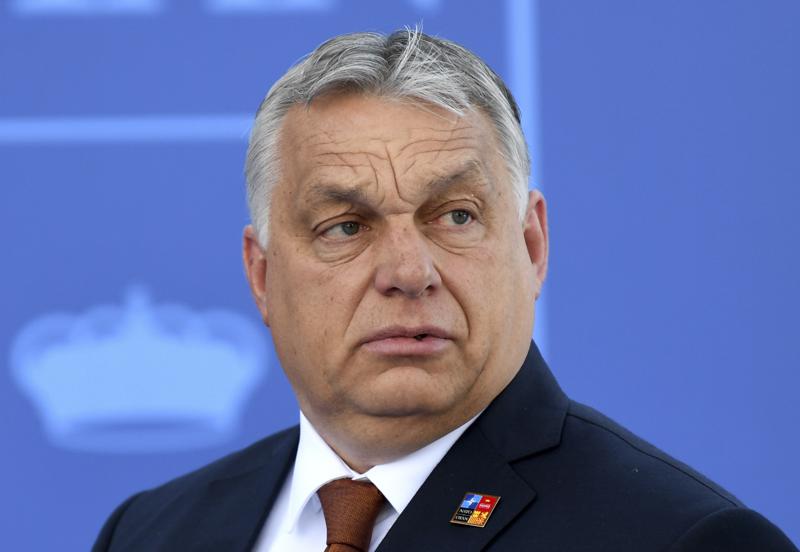By Santiago Vera Garcia
Hungarian Prime Minister Viktor Orbán rejected claims by NATO Secretary General Jens Stoltenberg that “all members” agreed on Ukraine’s admission to the North Atlantic military alliance.
The Hungarian leader posted a short but geopolitically significant message on his Twitter account Friday, simply writing: “What?”
Orbán’s post quoted a newspaper article citing comments by NATO’s secretary general that all 31 member states agreed to allow Ukraine to join the US-led military alliance.

“I said yesterday in Kyiv that Ukraine’s future is in the Euro-Atlantic family, and all NATO allies have agreed that Ukraine will become a member of NATO,” Stoltenberg said Friday at Ramstein Air Base in Germany.
He also noted that “the main focus now is how to ensure that Ukraine prevails in the war with Russia.”
“Without a sovereign, independent Ukraine, there is no point discussing membership,” he added.
Hungarian-Ukrainian relations have long been strained.
In this regard, in February, Orbán presented the war as a battle “between two Slavic countries fighting each other.”
While Orbán defended Ukrainian independence, he became one of the most critical voices against NATO’s involvement in the conflict.
He warned about the risks of involving the United States in an open war with Russia.
“This is their war, not ours,” he said.
WHY HUNGARY’S CONFRONTATION WITH UKRAINE
The background to the strained relations between the two countries is the Magyar minority in Ukraine, whose rights Hungary considers violated by the Kyiv government.
The Ukrainian region of Transcarpathia, which until 1918 belonged to Hungary, is home to some 150,000 ethnic Magyars.
Budapest criticizes Ukrainian laws related to using and teaching minority languages, such as Hungarian, the mother tongue of 12% of the region’s 1.2 million inhabitants.
Moreover, Orbán is less critical of Russian President Vladimir Putin than other Western leaders.
Despite condemning Russia’s invasion, Hungary has refused to send arms to help its neighbor.
Meanwhile, senior Hungarian officials regularly visit Moscow and maintain close ties with the Kremlin.
Like all other NATO members, Hungary has the right to veto any new admission.
In this regard, Hungary is willing to oppose the alliance’s expansion.
While Hungary ultimately supported Finland’s recent admission to NATO, although it delayed the issue for several months, along with Turkey, it has been reluctant to extend it to neighboring Sweden, which has been a persistent critic of Budapest’s conservative agenda.
Allowing Ukraine to join the alliance may be an even more unlikely decision for Orbán, who has been one of the few Western leaders to consistently call for peace talks between Moscow and Kyiv and who has refused to discursively accept Ukraine’s admission to NATO given his understanding that this would be a red line for Vladimir Putin.
Pointing to his country’s proximity to the conflict, the Hungarian leader warned of the possible ramifications of expanding the conflict beyond Ukraine’s borders, saying:
“if there is a world war, there will be a nuclear war.”
“That’s why we are on the side of peace; we want to stay there,” the Hungarian leader stressed.
With information from La Derecha Diario

